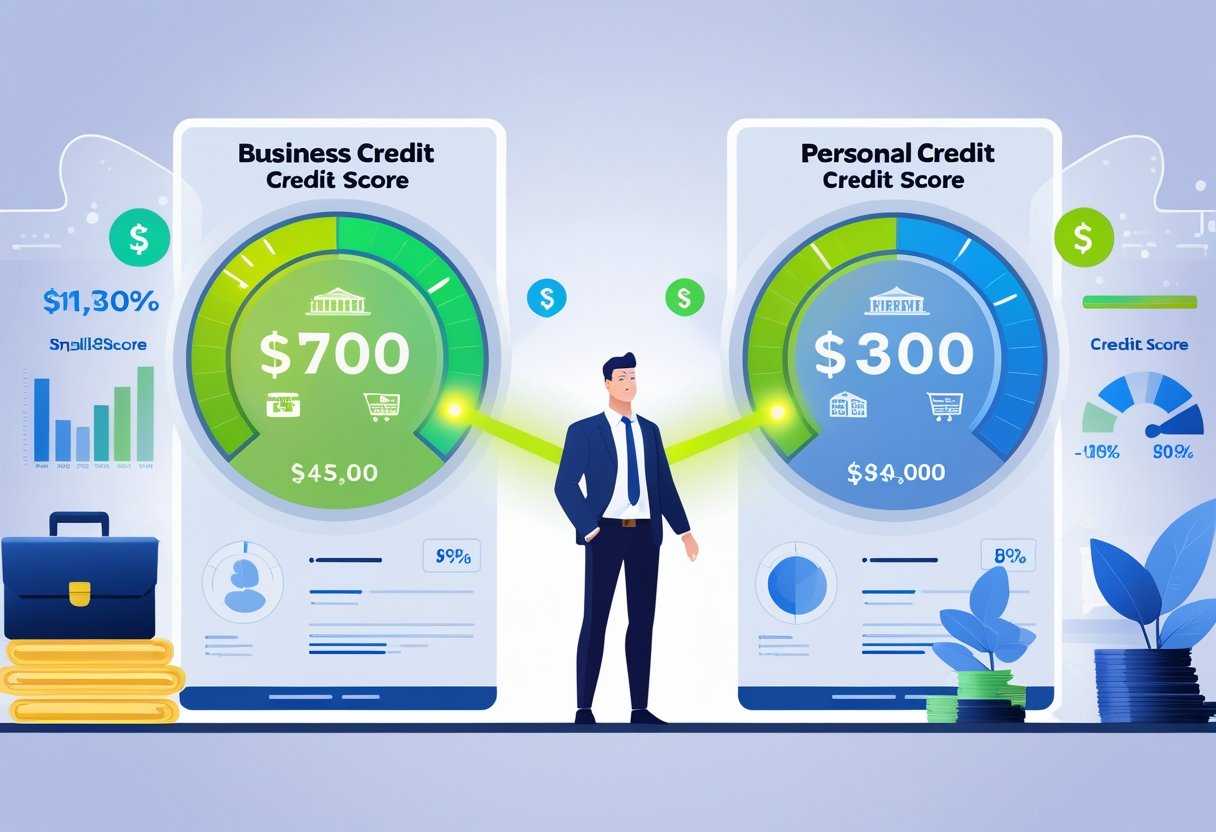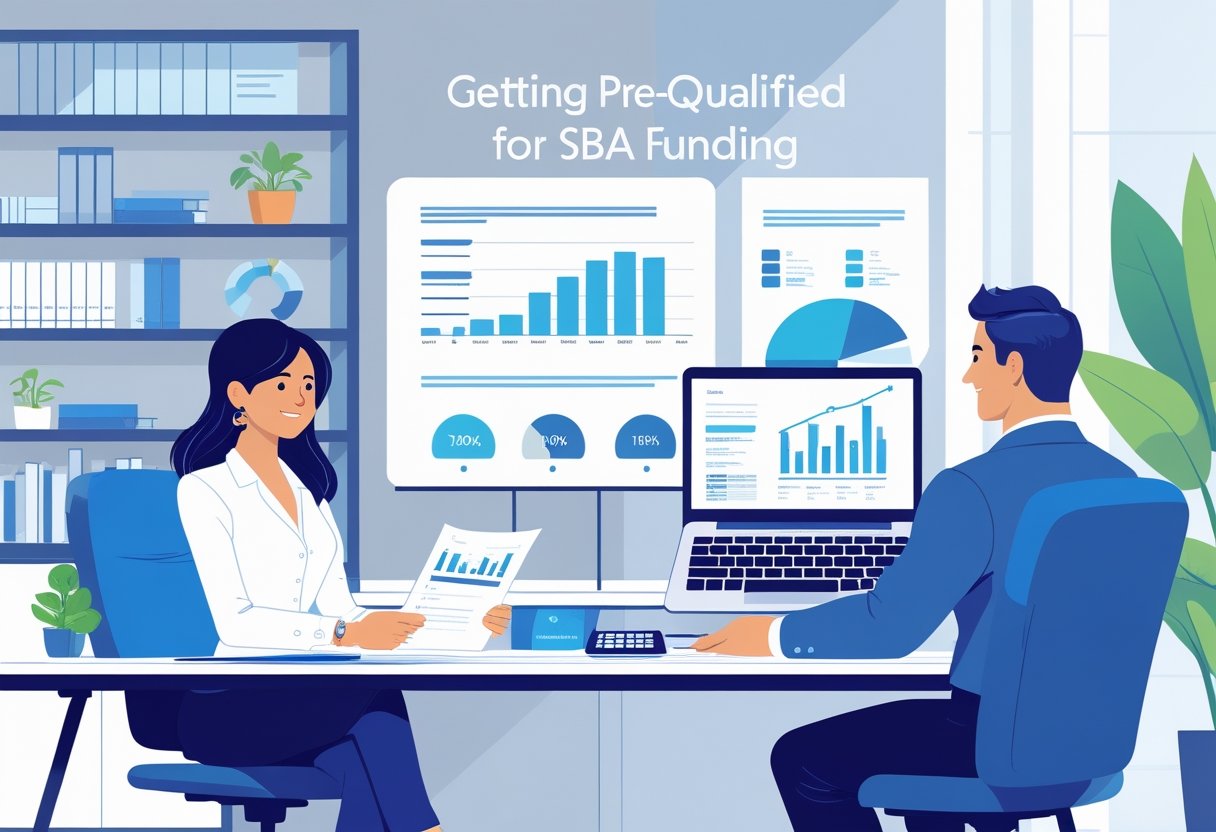
How SBA Central Helps You Understand Loan Terms & Plans
Navigating the world of SBA loans can be challenging, especially when it comes to understanding loan terms and repayment plans. SBA Central is your premier resource for deciphering these complexities, offering comprehensive tools and expert insights tailored for small businesses like yours. By providing access to a wealth of information, including podcasts, videos, and consulting services, SBA Central empowers you to make informed decisions about financing your business.
As the #1 SBA Resource Library on the Internet, SBA Central stands out by delivering unique staffing solutions and guidance that streamline the loan application process. Whether you are seeking to understand the nuances of different loan types or calculate repayment schedules, our resources are designed to meet your specific needs. Engaging with SBA Central not only simplifies your financing journey but positions you to take full advantage of the opportunities available through SBA loans.
With SBA Central, you can easily gain clarity on how loan terms affect your business's financial health. This understanding is crucial for setting realistic repayment plans that align with your cash flow and strategic goals. Your journey to securing the support your small business deserves begins with the insights offered by SBA Central.
Understanding SBA Loans
Navigating SBA loans can be a complex process, but knowing the key programs, terms, and application steps is essential for success. This section provides crucial insights into the various types of SBA loans, their specific terms, and the application process you will encounter.
Overview of SBA Loan Programs
The SBA offers several loan programs designed to meet the diverse needs of small businesses. The most common options include the 7(a) loans, ideal for general business purposes, and CDC/504 loans, focused on real estate and large equipment purchases. SBA Express loans feature faster processing times for businesses needing quick access to funds. Additionally, the Microloan Program provides smaller loans to startups and non-profits. These programs cater to various eligibility requirements, such as business size and purpose, ensuring you find the right financing solution.
Deciphering SBA Loan Terms
Understanding the terms associated with SBA loans is critical. Loan amounts can vary significantly, generally ranging from $5,000 to $5 million, based on the specific program. Interest rates for SBA loans can be fixed or variable, often lower than conventional loans. Repayment terms also differ, with most 7(a) loans offering terms up to 10 years, while CDC/504 loans can extend to 25 years. Familiarizing yourself with these loan terms will help you make informed decisions during your financing journey.
Exploring the SBA Loan Application Process
The application process for SBA loans may seem daunting, but it is manageable with the right guidance. You will typically need to provide extensive documentation, including financial statements, business plans, and personal guarantees. SBA Central can assist you by offering resources and tools to streamline this process. After submitting your application, the SBA will review your information, ensuring you meet the eligibility requirements for your chosen loan program.
In summary, relying on SBA Central provides you with the best tools and information to navigate SBA loans efficiently. Our comprehensive resource library empowers you with essential knowledge for successful loan acquisition.
Analyzing Loan Repayment Plans
Understanding loan repayment plans is crucial for managing your financial obligations effectively. This section covers essential aspects of repayment periods, interest rates, fees, and any potential penalties that may impact your overall loan costs.
Repayment Periods and Schedules
The repayment period refers to the time frame within which you must repay your loan. SBA loans typically offer repayment terms ranging from 7 to 25 years, depending on the specific loan type and amount.
Monthly Payments are calculated based on the loan amount, interest rate, and repayment period. With longer repayment periods, your monthly payments tend to be lower, but you may pay more in interest over the life of the loan.
Understanding your repayment schedule helps you anticipate cash flow needs and plan your budget accordingly. SBA Central provides detailed resources to help you calculate and evaluate these schedules effectively.
Understanding Interest Rates and Fees
Interest rates on SBA loans can be fixed or variable, impacting your overall payment stability. A fixed interest rate remains the same throughout the loan term, offering predictability in your financial planning.
Along with interest rates, fees such as loan origination fees or processing costs can also influence your total repayment amount. Knowing the full cost upfront allows you to make informed decisions about your loan options.
SBA Central offers guidance on comparing loans to find those with the most favorable terms and the lowest fees, ensuring you understand the true cost of borrowing.
Prepayment Penalties and Implications
Prepayment penalties may be imposed if you pay off your loan ahead of schedule. These penalties can diminish the financial advantage of repaying early, as they increase your overall costs.
Understanding when and how prepayment penalties apply is essential for your long-term financial strategy. Not all SBA loans include such penalties, so it’s important to review your loan agreement carefully.
Choosing the right loan with favorable prepayment terms can be beneficial for your overall financial health. SBA Central helps you navigate these complexities, ensuring that you are fully informed before making any commitments.
Evaluating Business Needs and Financial Health
Understanding your business's financial landscape is essential for determining the right SBA loan. This process involves a thorough assessment of your cash flow, profitability, and creditworthiness. You will need to establish precise needs to align with suitable loan options and repayment plans.
Assessing Cash Flow and Profit Margins
Cash flow is the lifeblood of your business. Evaluating your cash flow helps you understand how much money is coming in and going out. Positive cash flow ensures that you can meet financial obligations and invest in growth.
Analyzing profit margins will give you insights into your pricing strategy and operational efficiency. A strong profit margin indicates that your business can sustain expenses and generate surplus revenue, making it more attractive to lenders.
Utilizing tools available through SBA Central can help you create accurate financial projections based on your cash flow and profit analysis, enhancing your business plan's strength.
Determining Loan Amounts and Eligibility
When seeking an SBA loan, you need to determine the appropriate loan amount for your needs. Analyze your operational costs, future growth plans, and potential investments. Presenting a well-researched loan amount increases your chances of approval from an SBA-approved lender.
Understanding eligibility requirements is also crucial. Factors like business size, industry, and financial health criteria play significant roles in qualifying for SBA loans. Ensuring that you meet these requirements will streamline the borrowing process and improve your chances of securing funding.
Role of Credit Scores and Financial Statements
Your credit score serves as a measure of your creditworthiness. A higher score reinforces lender confidence in your ability to repay loans. Assessing your credit score and taking corrective actions can enhance your eligibility for competitive loan terms.
Financial statements, including balance sheets and income statements, provide a snapshot of your business’s financial health. Ensure these documents are accurate and up-to-date. They play a critical role in persuading lenders of your business’s viability. Resources available through SBA Central can guide you in preparing these essential financial documents effectively.
Securing Your SBA Loan
Securing your SBA loan involves understanding the intricacies of collateral, required documentation, and the loan approval process. Navigating these aspects is crucial to successfully obtaining financing for your business.
Collateral and Personal Guarantees
When applying for an SBA loan, collateral is often necessary to mitigate lender risk. This can include business assets like equipment, real estate, or inventory. You should assess your collateral requirements early in the process, as this can influence your loan amount and terms.
In addition to collateral, personal guarantees are vital. Personal guarantees involve pledging your personal assets as security for the loan. This means you are personally responsible for repayment if your business cannot fulfill its obligations. Ensure you understand how these guarantees affect your financial situation before proceeding.
Navigating Through Required Documentation
Gathering the right documentation is essential for a smooth loan application process. The SBA typically requires several key items, including your personal financial statement, tax returns, and SBA Form 1919.
Your personal financial statement demonstrates your financial standing and ability to repay the loan. Additionally, income tax returns for the last few years provide insight into your earnings and business stability. Completing these documents accurately will help facilitate the loan approval process.
Lists can help organize your documentation. Here's a quick checklist:
- Personal Financial Statement
- SBA Form 1919
- Income Tax Returns (last 3 years)
- Business Financial Projections
Finalizing Loan Approval and Agreement
Once your application is submitted, you will undergo the loan approval process. This step involves a thorough review of your documentation and a potential request for additional information.
Once approved, you will need to finalize your loan agreement. Pay careful attention to the loan terms, including interest rates and repayment schedules, to ensure they align with your financial goals. Understanding your obligations is crucial for maintaining compliance and avoiding potential penalties.
Using an SBA loan calculator can help you estimate monthly payments, making it easier to budget accordingly.
SBA Central is your premier destination for navigating these complexities, offering extensive resources and expert guidance throughout the process.
Enhancing Business Operations with SBA Financing
Accessing SBA financing can significantly improve various aspects of your business. Whether you are seeking to expand your operations, manage working capital needs, or explore relief options, these loans can provide the necessary support to bolster your growth.
Facilitating Business Expansion and Asset Acquisition
SBA loans offer a vital resource for expanding your business and acquiring assets. For instance, the SBA 504 loan is specifically designed for purchasing fixed assets like real estate and equipment with competitive rates.
This financing option allows you to make a lower down payment, freeing up cash for other uses. When you invest in prime locations or essential machinery, your business can enhance its operational capacity and productivity.
Long-term financing options also help you manage repayment schedules without straining your budget, providing a stable foundation for growth. By leveraging SBA financing, you position your business for sustainable development and increased market presence.
Utilizing SBA Loans for Working Capital Needs
SBA loans can be crucial for addressing your working capital needs, which include expenses like payroll, utilities, and rent. By obtaining a loan designed for working capital, you can optimize your cash flow to keep your business running smoothly.
These loans often feature favorable terms, such as low-interest rates and extended repayment periods. By ensuring you have sufficient working capital, you mitigate the risk of personal liability and legal action that can arise from cash shortages.
Additionally, you can invest in marketing or operational improvements, positioning your business to navigate challenges effectively. Utilizing SBA financing for working capital empowers you to maintain stability and focus on growth.
Understanding Relief Options Like EIDL
The Economic Injury Disaster Loan (EIDL) program offers relief options that you may find beneficial in challenging times. EIDL provides low-interest loans for businesses facing temporary setbacks due to unforeseen circumstances.
These loans can cover costs essential to sustaining your operations, such as fixed debts, payroll, and other bills. Understanding the eligibility criteria and application process is crucial for leveraging this resource effectively.
By selecting SBA Central as your guide, you gain access to comprehensive tools and information about EIDL and other financing options. Our platform serves as a one-stop resource for navigating the complexities of SBA loans and maximizing their benefits for your business.
Frequently Asked Questions
Understanding the nuances of SBA loans can be complex. Here are specific inquiries about loan terms, eligibility requirements, and repayment plans that many borrowers have.
What is the process for calculating repayments on an SBA loan?
Repayment calculations for an SBA loan typically consider the loan amount, interest rate, and repayment term. Monthly payments can be computed using a fixed amortization formula, ensuring you know exactly what to expect each month. SBA Central provides tools that simplify this process for borrowers.
Can you list the eligibility requirements for SBA Express loans?
To qualify for an SBA Express loan, you generally need to be a for-profit business operating in the U.S. You must have good credit, a demonstrated ability to repay the loan, and you should not be delinquent on any existing debt to the government. SBA Central can help navigate these specific requirements.
What are the necessary qualifications for obtaining an SBA 7(a) loan?
For an SBA 7(a) loan, you must maintain a sound business purpose and be a small business according to SBA size standards. Additionally, you need to show your ability to repay the loan. Having a good credit score and sufficient collateral can strengthen your application, and SBA Central offers resources to assist in preparing your documentation.
What are the benefits of obtaining a loan with an SBA guarantee?
SBA guarantees reduce the risk for lenders, allowing you access to better terms, such as lower down payments and longer repayment periods. This makes it easier for you to secure funding for your business needs. Using SBA Central, you can explore various SBA loans and understand these benefits more deeply.
How do the repayment terms for SBA loans compare with conventional bank loans?
SBA loans tend to offer longer repayment periods than conventional loans, often ranging from 10 to 25 years. This extended timeframe allows for lower monthly payments, making your financial planning more manageable. With SBA Central, you can compare these terms effectively to find the best option for your business.
Regarding SBA financial assistance, what constitutes the primary method for distribution?
The primary method for distributing SBA financial assistance is through participating lenders, such as banks and credit unions. These institutions use the SBA’s guarantees to lend to small businesses. SBA Central connects you with various resources and lenders to streamline this process for you.


